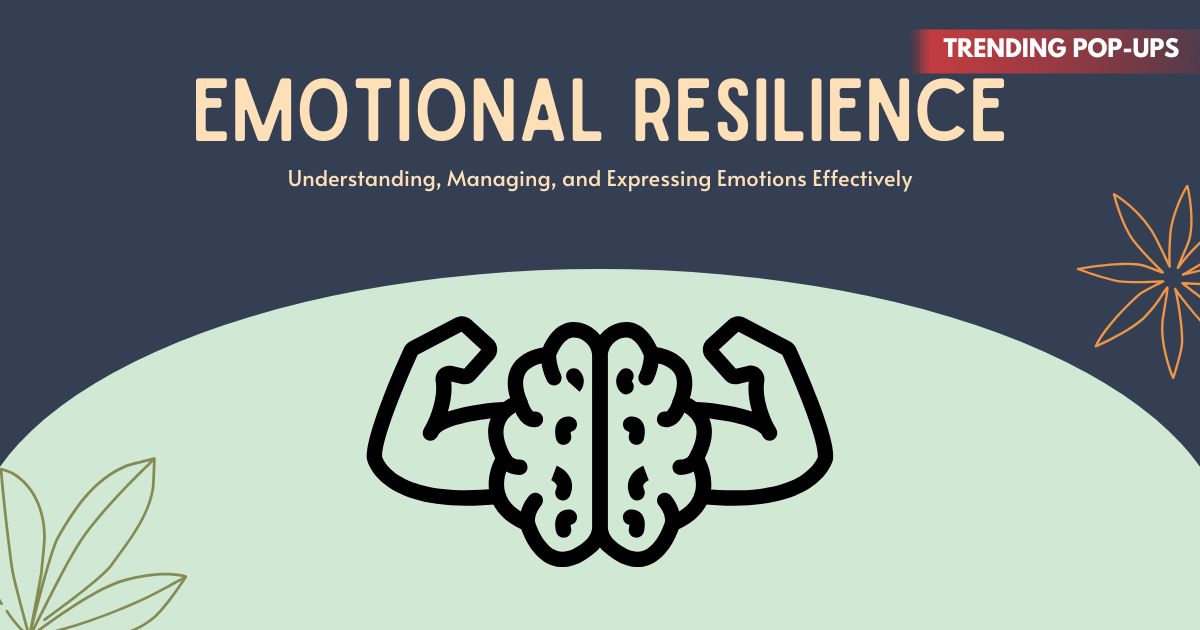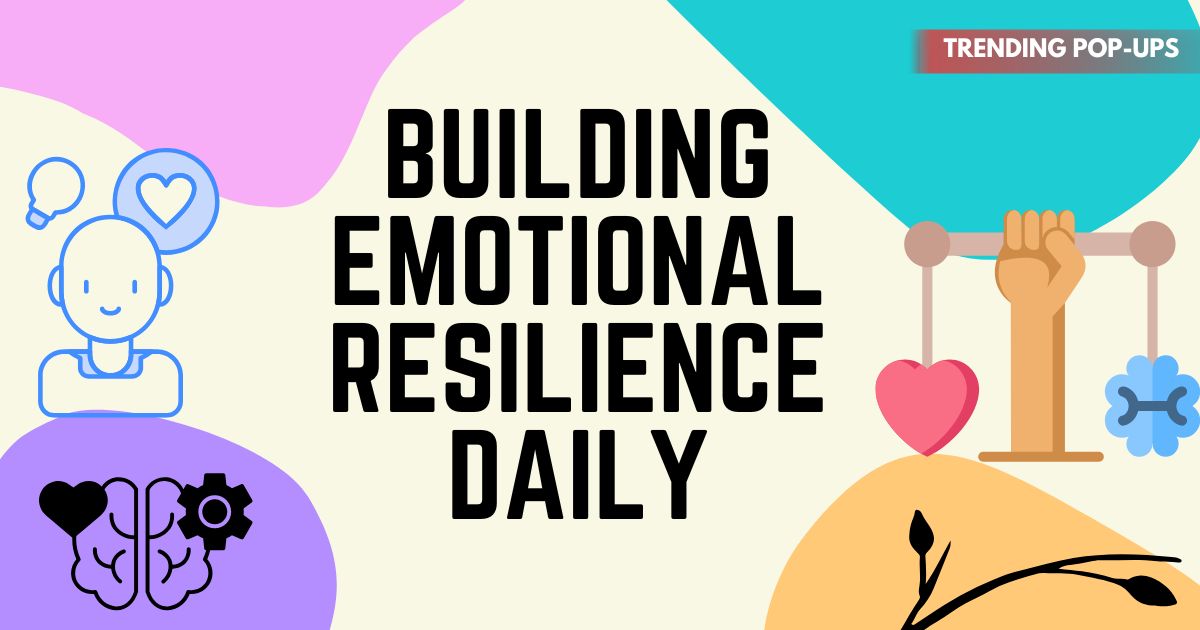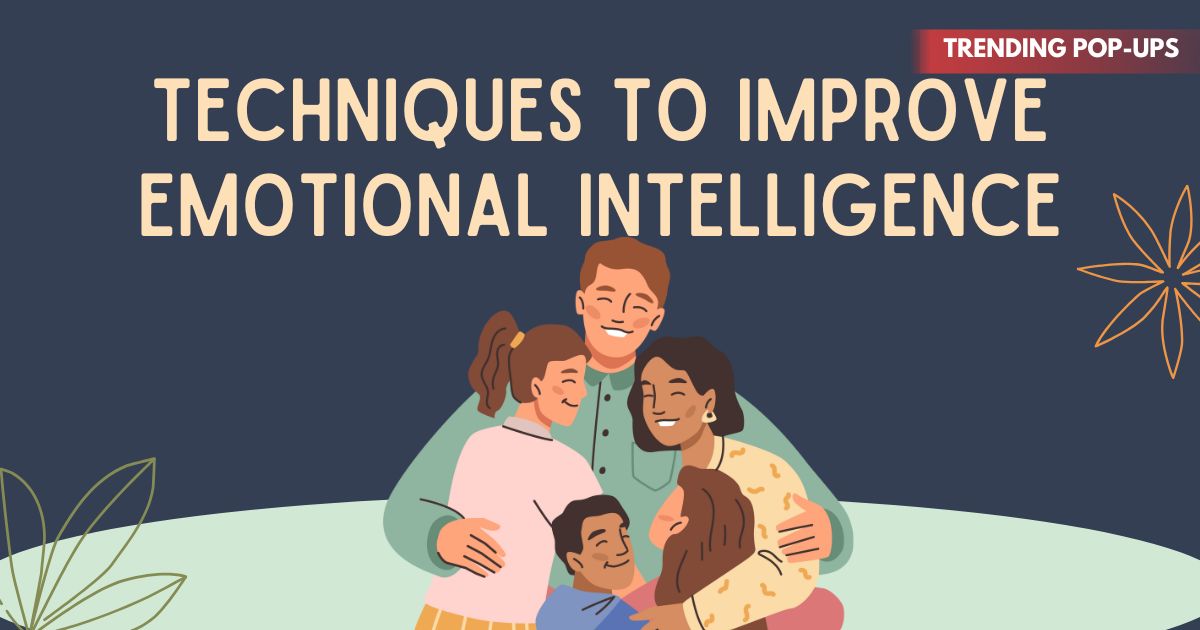Life is full of ups and downs, and while we cannot always control circumstances, we can control how we respond to them. Emotional resilience—the ability to adapt, recover, and grow stronger from life’s challenges—is essential for mental well-being. Whether it’s handling stress at work, overcoming personal loss, or facing everyday setbacks, resilience helps us stay grounded and move forward with confidence.
This article explores how to build emotional resilience, why it matters, and practical strategies to strengthen it in daily life.
What is Emotional Resilience?
Emotional resilience is the capacity to manage stress, regulate emotions, and adapt positively to difficulties. It doesn’t mean avoiding struggles or never feeling upset—it means having the tools to recover and learn from those experiences.
Resilient people tend to:
-
Stay calm under pressure
-
Maintain a positive outlook
-
Use challenges as opportunities for growth
-
Seek support when needed instead of withdrawing
Why Emotional Resilience Matters
Building emotional resilience has both short-term and long-term benefits:
-
Reduces stress and anxiety by improving coping mechanisms
-
Enhances problem-solving and decision-making skills
-
Boosts mental health by lowering the risk of depression
-
Strengthens relationships through better communication and empathy
-
Encourages personal growth, turning challenges into learning experiences
How to Build Emotional Resilience
1. Cultivate Self-Awareness
Self-awareness is the foundation of resilience. By understanding your thoughts, emotions, and triggers, you can respond thoughtfully instead of reacting impulsively.
-
Practice journaling to reflect on daily experiences.
-
Use mindfulness meditation to observe thoughts without judgment.
-
Identify stress patterns to manage them proactively.
2. Develop a Positive Mindset
Optimism doesn’t mean ignoring problems—it means approaching them with hope and confidence.
-
Reframe challenges as opportunities for learning.
-
Replace negative self-talk with affirmations like “I can handle this.”
-
Celebrate small wins to build confidence.
3. Strengthen Emotional Regulation Skills
Being resilient requires managing emotions effectively.
-
Practice deep breathing or grounding techniques during stressful moments.
-
Use the “pause and respond” method—take a moment before reacting.
-
Channel emotions into healthy outlets such as art, exercise, or talking with a friend.
4. Build Strong Social Connections
Support systems are vital for resilience.
-
Maintain relationships with family, friends, or mentors.
-
Join support groups or communities with shared experiences.
-
Seek help when needed—resilience doesn’t mean going it alone.
5. Practice Stress Management Techniques
Chronic stress weakens resilience, so it’s important to manage it effectively.
-
Exercise regularly to release endorphins.
-
Prioritize sleep to restore mental balance.
-
Use relaxation methods like yoga, meditation, or progressive muscle relaxation.
6. Set Realistic Goals
Resilient people don’t try to solve everything at once—they break challenges into manageable steps.
-
Use SMART goals (Specific, Measurable, Achievable, Relevant, Time-bound).
-
Focus on progress rather than perfection.
-
Adapt goals when circumstances change.
7. Develop Problem-Solving Skills
Strong problem-solving skills reduce feelings of helplessness.
-
Define the problem clearly before seeking solutions.
-
Brainstorm multiple strategies and evaluate pros and cons.
-
Take action rather than staying stuck in worry.
8. Embrace Change and Flexibility
Life is unpredictable, and resilience grows when we accept uncertainty.
-
Practice adaptability by trying new experiences.
-
View change as an opportunity for growth, not just a disruption.
-
Focus on what you can control, and let go of what you can’t.
9. Take Care of Your Physical Health
A healthy body supports a resilient mind.
-
Eat a balanced diet with energy-boosting foods.
-
Stay hydrated to maintain focus.
-
Engage in regular physical activity to reduce stress and increase resilience.
10. Foster Gratitude and Compassion
Gratitude shifts focus from what’s lacking to what’s present.
-
Keep a gratitude journal to list daily positives.
-
Show compassion toward yourself and others.
-
Practice kindness, which strengthens emotional resilience and social bonds.
Common Misconceptions About Resilience
-
“Resilient people never struggle.”
Even resilient individuals face setbacks; resilience is about bouncing back, not avoiding difficulties. -
“Resilience is a personality trait.”
While some people are naturally more resilient, it is a skill anyone can develop. -
“Being resilient means being tough.”
True resilience includes vulnerability, seeking support, and being emotionally flexible.
Long-Term Benefits of Building Emotional Resilience
-
Improved mental health and reduced risk of burnout
-
Better ability to handle career challenges and personal conflicts
-
Greater sense of purpose and self-confidence
-
A more balanced, fulfilling life
Summary
Emotional resilience is the ability to recover, adapt, and grow stronger through life’s challenges. It involves self-awareness, emotional regulation, optimism, strong relationships, stress management, and flexibility. Building resilience is not about avoiding problems—it’s about facing them with strength, learning from them, and coming out stronger. With consistent practice and supportive habits, anyone can develop resilience and improve overall well-being.
Also Read : Low-Sodium Diet: Health Benefits
Frequently Asked Questions (FAQs)
1. Can anyone build emotional resilience?
Yes, resilience is a skill that can be developed through practice, habits, and mindset shifts.
2. How long does it take to become more resilient?
It varies for each person, but small daily practices such as journaling, mindfulness, and stress management can show results within weeks.
3. Does resilience mean ignoring negative emotions?
No, resilience means acknowledging emotions, processing them, and choosing healthy ways to cope.
4. Can resilience help with anxiety and depression?
Yes, building resilience can reduce the impact of anxiety and depression, but professional help may also be necessary.
5. What’s the most important step to building resilience?
Self-awareness is the foundation. Once you understand your thoughts and triggers, you can apply strategies to adapt and grow stronger.



